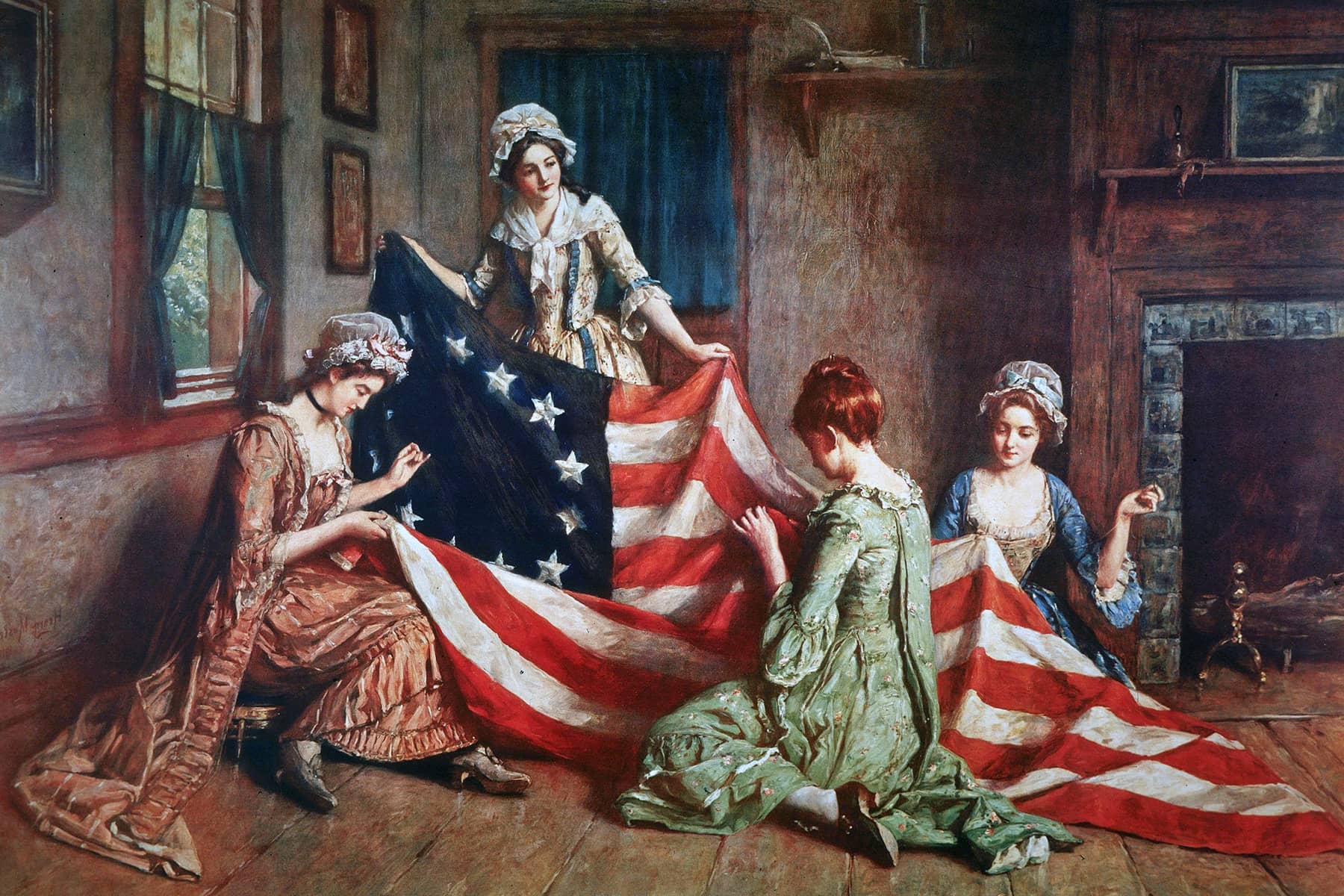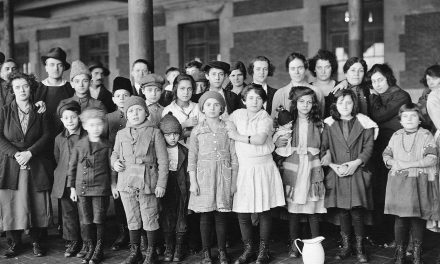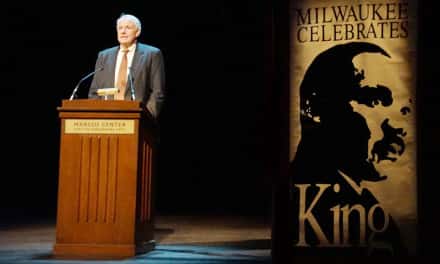
In our history, the United States has gone through turning points when we have had to adjust our democratic principles to new circumstances. The alternative is to lose those principles to a small group of people who insist that democracy is outdated and must be replaced by a government run by a few leaders or, now, by a single man.
The Declaration of Independence asserted as “self-evident” that all people are created equal and that God and the laws of nature have given them certain fundamental rights. Those include — but are not limited to — life, liberty, and the pursuit of happiness. The role of government was to make sure people enjoyed these rights, and thus governments are legitimate only if those they rule consent to that government.
The Founders’ concept that all men were created equal and had a right to consent to the government under which they lived, the heart of the Declaration of Independence, was revolutionary. For all that it excluded Indigenous Americans, Black colonists, and all women, the very idea that men were not born into a certain place in a hierarchy and could create a government that reflected such an idea upended traditional western beliefs.
From the beginning, though, there were plenty of Americans who doubled down on the idea of human hierarchies in which a few superior men should rule the rest. They argued that the Constitution was designed to protect property alone and that as a few men accumulated wealth, they should run things. Permitting those without property to have a say in their government would mean they could demand that the government provide things that might infringe on the rights of property-owners.
These undercurrents have always tossed our republic, but four times in our history, new pressures have brought these two ideas into open conflict. In the 1850s, 1890s, and 1930s and in the present, we have had to fit our democracy to new circumstances.
In the 1850s, the pressures of western expansion forced Americans to figure out what, exactly, they wanted the nation to stand for. Northern states, whose mixed economy needed educated workers, and thus widely shared economic and political power, opposed the hierarchical system of human enslavement. Southern states, whose economy rested on the production of raw materials by enslaved workers, opposed equality. Aside from occasional flare-ups, the two systems had muddled along together for sixty years, despite the reality that the enslavers were shrinking farther and farther into the minority as population in the North boomed.
The U.S. acquisition of western land with the 1848 Treaty of Guadalupe Hidalgo opened the opportunity for enslavers to address their weakening position by dominating the national government. If they could spread enslavement into the new territories, they could overawe the North in Congress and pass laws to make their system national. As South Carolina Senator James Henry Hammond put it: “I repudiate, as ridiculously absurd, that much lauded but nowhere accredited dogma of Mr. Jefferson that ‘all men are born equal.”’
When Congress, under extraordinary pressure from the pro-southern administration, passed the 1854 Kansas-Nebraska Act, overturning the Missouri Compromise and letting slavery spread into the West, northerners of all parties woke up to the looming loss of their democratic government. A railroad lawyer from Illinois, Abraham Lincoln, remembered how northerners were “thunderstruck and stunned; and we reeled and fell in utter confusion. But we rose each fighting, grasping whatever he could first reach – a scythe – a pitchfork – a chopping axe, or a butcher’s cleaver” to push back against the slaveowning oligarchy. And while they came from different parties, he said, they were “still Americans; no less devoted to the continued Union and prosperity of the country than heretofore.”
Slavery apologists urged White voters not to worry about Black Americans held in slavery, but Lincoln urged Americans to come together to protect the Declaration of Independence. “I should like to know if taking this old Declaration of Independence, which declares that all men are equal upon principle and making exceptions to it where will it stop?… If that declaration is not the truth, let us get the Statute book, in which we find it and tear it out!”
When voters agreed with Lincoln and elected him to the presidency in 1860, southerners tried to create their own nation based on human inequality. As Georgia Senator Alexander Stephens, soon to be the vice president of the Confederacy, explained in March 1861: “Our new government is founded … upon the great truth that the negro is not equal to the White man; that slavery subordination to the superior race is his natural and normal condition. This, our new government, is the first, in the history of the world, based upon this great physical, philosophical, and moral truth.”
In office, Lincoln reached back to the Declaration — written “four score and seven years ago” — and charged Americans to “resolve that … this nation, under God, shall have a new birth of freedom — and that government of the people, by the people, for the people, shall not perish from the earth.”
The victory of the United States government in the Civil War ended the power of enslavers in the government, but new crises in the future would revive the conflict between the idea of equality and a nation of hierarchies.
In the 1890s, the rise of industrialism led to the concentration of wealth at the top of the economy. Steel baron Andrew Carnegie celebrated the “contrast between the palace of the millionaire and the cottage of the laborer,” for although industrialization created “castes,” it created “wonderful material development,” and “while the law may be sometimes hard for the individual, it is best for the race, because it insures the survival of the fittest in every department.”
Those at the top were there because of their “special ability,” and anyone seeking a fairer distribution of wealth was a “Socialist or Anarchist … attacking the foundation upon which civilization rests.” Instead, he said, society worked best when a few wealthy men ran the world, for “wealth, passing through the hands of the few, can be made a much more potent force for the elevation of our race than if it had been distributed in small sums to the people themselves.”
Once again, people of all political parties came together to reclaim American democracy. Although Democrat Grover Cleveland was the first to complain that “corporations, which should be the carefully restrained creatures of the law and the servants of the people, are fast becoming the people’s masters,” it was Republican Theodore Roosevelt who is now popularly associated with the development of a government that regulated the excesses of big business.
He complained about that “small class of enormously wealthy and economically powerful men, whose chief object is to hold and increase their power,” and ushered in the Progressive Era with government regulation of business to protect the ability of individuals to participate in American society as equals.
The rise of a global economy in the twentieth century repeated the pattern. After socialists took control of Russia in 1917, American men of property insisted that any restrictions on their control of resources or the government were a form of “Bolshevism,” but in the 1930s a worldwide depression brought voters of all parties behind President Franklin Delano Roosevelt, who used the government to provide a “New Deal for the American people.”
His government regulated business, provided a basic social safety net, and promoted infrastructure. Then, after Black and Brown veterans coming home from World War II demanded equality, that New Deal government, under Democratic president Harry Truman and Republican president Dwight D. Eisenhower, worked to end racial and, later, gender hierarchies in American society.
Now, once again, we are at an inflection point. The rise of global oligarchs and the internet, which enables those oligarchs to spread disinformation, has made significant numbers of American voters once again slide away from democracy to embrace the idea that the country would work better with a few leaders making the rules for the rest of us.
In nineteen states, Republican-dominated legislatures have passed laws that restrict the vote and entrench minority rule, even up to allowing state legislatures to overturn election results. If that is permitted to stand, that minority can choose our president, and it is increasingly backing one single man, one individual, to rule over the rest of us.
If history is any guide, we are at the point when voters of all parties must push back, to say that we do, in fact, believe in the principles stated in the Declaration of Independence, that all people are created equal, and that our government is legitimate only if we have a say in it.
Library of Congress
Letters from an Аmerican is a daily email newsletter written by Heather Cox Richardson, about the history behind today’s politics













